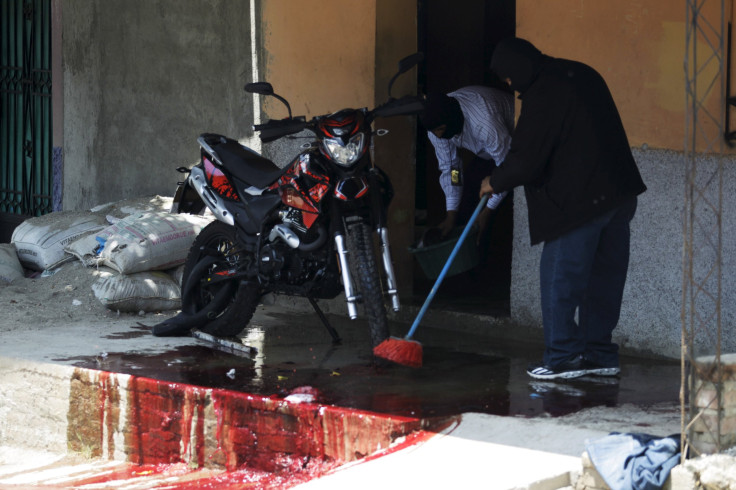
A coalition of 270 pro-immigrant organizations sent a letter to President Obama on Monday asking him to give indefinite legal status to an estimated 1.5 million* Central American immigrants in the country illegally. Advocates argue that residents of Guatemala, Honduras and El Salvador are are not safe to send back, citing astronomical murder rates as much as 44 times that of the U.S. All 3 countries are more dangerous than the world’s most violent war zones. Some immigrants deported in recent months have been murdered, according to reports. Like the 20 Senators who urged Obama to act last week, the coalition is calling for the government to designate and redesignate violence-ridden Central American countries under TPS.
“[We] respectfully request that the Secretary of the U.S. Department of Homeland Security (DHS), in consultation with the Secretary of State, designate El Salvador, Guatemala, and Honduras (an area known as the “Northern Triangle”) for Temporary Protected Status (TPS),” the letter says.
DHS can make extensions (allowing those who qualified to stay longer) and redesignations (moving up the eligibility date) at any time. For example, the agency announced just this morning that it would both extend and redesignate TPS for citizens of South Sudan “due to the ongoing armed conflict and extraordinary and temporary conditions in [that East African country] that prevent its nationals from safely returning.”
Meanwhile, it’s election season, and executive action on immigration by the President has already enraged political foes who seek to further reduce the immigrant population. Deportation relief programs including DAPA and (expanded) DACA are being challenged in court. Top Republican presidential candidates have agreed to oppose comprehensive immigration reform, and they’re leading in the polls.
Immigration lobbyists signing the letter say that the measure would not replace immigration reform, but it would save immigrant lives while organizations continue to fight for a comprehensive bill. Human rights advocates who helped write the letter say that the possibility of drawing migrants or provoking Republicans isn’t part of their calculus.
“I’m not in the business of politics, I’m in the business of protection,” says Royce Bernstein Murray, Director of Policy at the National Immigrant Justice Center.
The letter, which lists Murray as a contact for the White House to call lays out the legal and moral case for authorizing TPS for Guatemala, and reauthorizing TPS for Honduras and El Salvador. Admissions of refugees through the asylum process have been inadequate as the standards are too narrow, it says. According to advocates, TPS offers a wider net of eligibility for those who are fleeing violence.
What Is TPS?
The executive authority to grant TPS stems from a 1990 law that sought to cover to expand relief measures limited by the strict admission criteria of asylum law. Beneficiaries are limited in many ways that asylum seekers are not. For example, it's harder to apply for a green card or bring relatives into the country.
TPS has become controversial despite those restrictions. Opponents point out that TPS is almost never revoke, and in practice are indefinite.
The existing 13 TPS designations all stem from natural disasters (Nepal, Haiti, El Salvador) or civil wars between political factions (Liberia, South Sudan, Syria). Pointing out that El Salvador, Guatemala and Honduras suffer the highest homicide rates in the world, Murray argues that there's nothing in the law that precluded gang violence.
“What matters is whether we can deport these people safely,” she says, arguing that that (like South Sudan), DHS should consider the ongoing violence in those countries as “extraordinary and temporary conditions.”
So far the Obama administration has disagreed, and in fact has been trying to deport more Central Americans. In January, ICE began raids on self-styled refugees from Central America. Immigration officials say that deportation of recent arrivals is part of a strategy to deter future migrants.
The White House may be asking themselves if Democrats can afford another unilateral move on immigration ahead of the 2016 elections, or would it actually help them with voters. The consequences of their decisions will affection not only this year’s electoral contest, but the lives of millions of migrants and their families, and the politics of immigration for years to come.
*According to DHS statistics from 2011, the combined undocumented population from Northern Triangle countries is around 1.5 million. The number could be higher given recent migration trends from Central America.
© 2024 Latin Times. All rights reserved. Do not reproduce without permission.